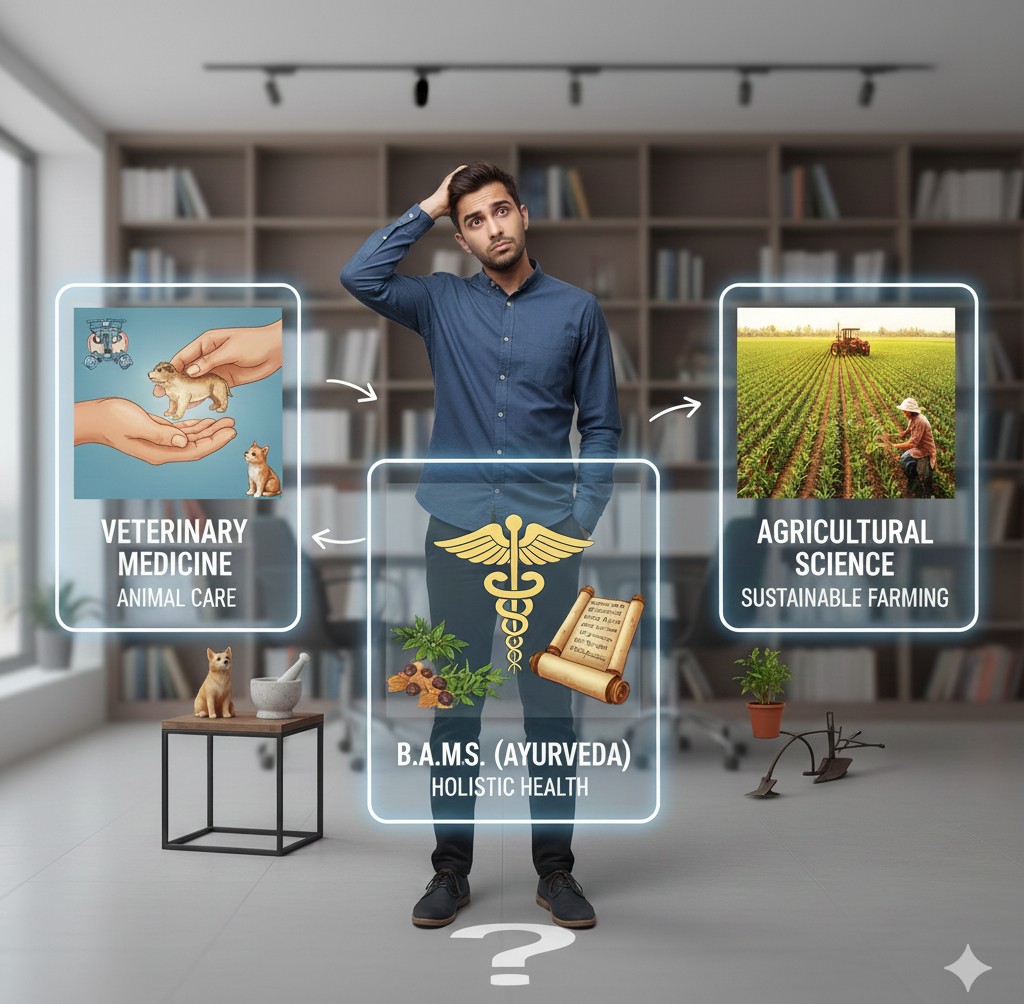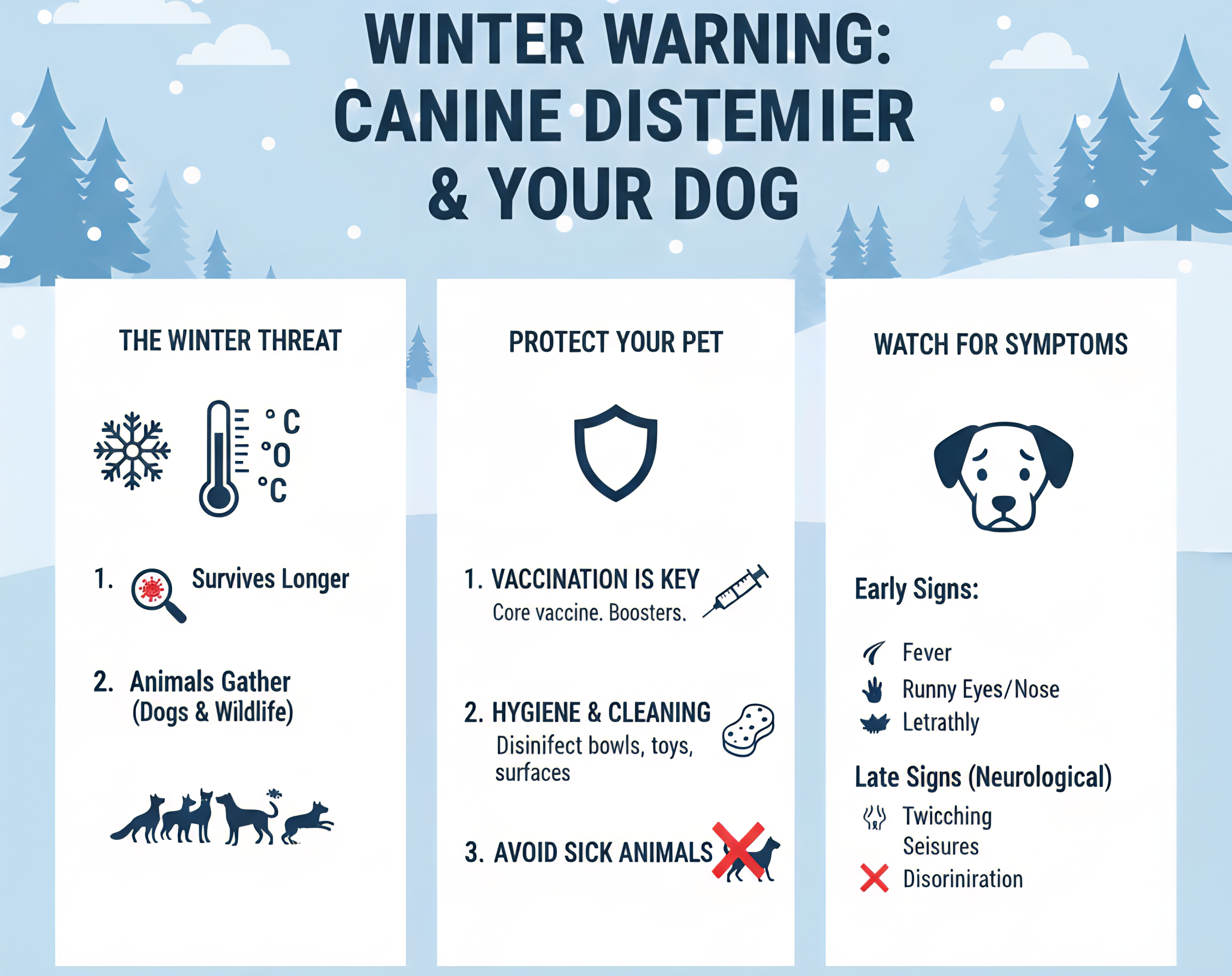The field of veterinary medicine goes way beyond small animal clinics. It has a great variety of career opportunities that promote animal health and well-being, along with personal growth and profit. This article aims to enlighten you with various different perspectives on this field and will also help you figure out your career options after graduation in veterinary medicine, whether you're confused about choosing between a medical or non-medical field, or even unsure about staying in your home country or becoming an international student.
Master's Programme
A master's degree in veterinary science offers a well established path for veterinarian seeking to strengthen their field of interest. It provides a wide range of specialization such as small animal medicine, large animal medicine, public health, or disciplines like pathology, microbiology, and genetics. A Master’s degree is essential if you see yourself teaching a class or doing research. Along with Master’s various colleges and universities look for a PhD in that subject for Professor roles. If you are interested in masters, it’s best to start preparing for your ICAR-PG and other state level exams from 3rd year of your UG degree.
Clinical Practice
Small Animal vs. Large Animal Medicine
Small animal veterinarians primarily focus on animals such as dogs, cats, rabbits, hamsters, and other small mammals. Their daily work often involves:
- Routine check-ups and shots
- diagnosing and treating diseases and injuries
- Performing surgical treatment (spaying or neutering, dental procedures, etc.)
- Offering preventive services and parasite control
- Counseling pet owners on eating habits, behavior, and training
Large animal veterinarians, on the other hand, dedicate their expertise to the care of larger animals, primarily livestock like cows, horses, sheep, pigs, and goats. Their work environment is often more rural, requiring travel to farms and ranches. Their responsibilities may include:
- Herd health management and disease prevention
- Pregnancy monitoring and assistance with calving or foaling
- Treating injuries and illnesses in large animals
- Performing surgeries on larger animals (often in field setting)
- Providing nutritional and reproductive counseling to farmers
Veterinary Officer
Yes, that's the government job everyone talks about. Jokes apart, Being a veterinary officer (VO) is a great career option for graduates with a Bachelor of Veterinary Science (BVSc) degree. It offers a stable government job with a variety of responsibilities and opportunities to contribute to animal health and well-being. These positions are achieved through various entrance exams conducted every year. The fact that you would be helping animals and serving the nation is the best thing about it. You will also receive a decent salary along with stability and work security.
Practicing Veterinary Medicine Abroad:
Veterinary medicine is not limited to national borders. With rising demand for vets and the prospect of greater success, an increasing number of students apply for higher education in countries such as the United States, Canada, and Australia. This requires preparation right from the beginning in your first year of graduation, and it is never too late to start. Different countries have their own licensing exams such as NAVLE for USA & Canada. It is often recommended that you take the practical exam in India since you will be more familiar with animals and pets than in other countries where animals and pets could vary by breeds. You can also apply for your theory exam from abroad. In addition, you must qualify for the basic language exams.
Resources:
- American Veterinary Medical Association (AVMA) - International Veterinary Services: https://www.avma.org/
- World Organisation for Animal Health (OIE): https://www.woah.org/en/?OIE
- National Veterinary Authorities of your target country: Research the specific licensing requirements and procedures of the country you're interested in.
Non-Clinical Careers
Business and Management
- MBA in veterinary practice management: It is a really promising field if you are ready to put in the work. In this instance, the most economically profitable option would be to take the CAT exam and try to get into one of the top IIMs. If you are interested in this, you should begin preparing for the CAT and other competitive exams throughout your undergraduate studies, as they will include mental ability tests and other areas that will demand a lot of practice.
- Pharmaceutical Sales: If you want consistent income, this is your field, but don't we all need it? Anyway, you must have a thorough understanding of how medications work, their functions, and their adverse effects. Along with this, you must have strong communication and persuasion skills for marketing and sales. If you have strong interpersonal abilities, this is the job for you.
- Starting your own Veterinary Business: Want to be your own boss? This is for you and a very profitable and promising field. Make sure you have sufficient funds to establish your own farm or enterprise. The poultry industry is a popular trend that provides excellent returns. You can even have goat or pig farms. Most individuals with family heirlooms go for this. However, if your grandfather did not leave a farm in your name, you can still establish your own with patience and persistence.
Research
- Academic Research Institutions : Various research organizations offer numerous prospects for veterinary research, including illness prevention, infectious diseases, zoonotic diseases (those that can be transmitted from animals to people), animal nutrition, and animal welfare. Veterinarians with a research focus can contribute in a variety of ways, including developing and carrying out tests, analyzing data, producing research articles, and cooperating with other scientists. Faculty positions, research scientist posts, and leadership roles in research laboratories are all possible outcomes of research.
- Pharmaceutical Companies : Millions of dangerous microorganisms are discovered each year, resulting in the emergence of numerous new diseases. Working on them and finding a treatment for them is both tough and thrilling. Imagine discovering a cure for a deadly disease and the pride that comes with a large check. Working in laboratories requires a high level of patience and enthusiasm.
- Integrated PhD Programs: Many universities offer integrated PhD programs in veterinary medicine, allowing you to combine your DVM degree with doctoral studies seamlessly. These programs often provide financial support through research assistantships and fellowships, making them a great option for those passionate about research. You can begin working on this during your graduation. Read as many research articles and publications as possible by scientists who inspire you and with whom you want to collaborate.
Careers in Wildlife and Conservation Medicine
Educational Qualifications:
- DVM Degree: Earning a Bachelor of Veterinary Science and Animal Husbandry (B.V.Sc & A.H.) degree from a recognized university is the foundational requirement.
- Master's Degree (Optional, but Beneficial): A Master's degree in Wildlife Biology, Conservation Biology, or Veterinary Public Health can enhance your expertise and career prospects. Some universities in India offer specialized postgraduate programs in Wildlife Health Management or Wildlife Veterinary Medicine.
Resources:
- Wildlife Institute of India (WII): https://wii.gov.in/
- Bombay Natural History Society (BNHS): https://www.bnhs.org/
- Wildlife Trust of India (WTI): https://www.wti.org.in/
The world of veterinary medicine has never-ending opportunities and prospects in both veterinary and non veterinary fields. It's one of the vast fields of science where you don't have to limit yourself to pursue a specific path. Whether you're passionate about starting a clinic, pursuing research and development or even policy of advocacy, there's a path within veterinary medicine waiting for you.
So, take the first step. Explore the possibilities, research the specializations, and connect with veterinary professionals!







